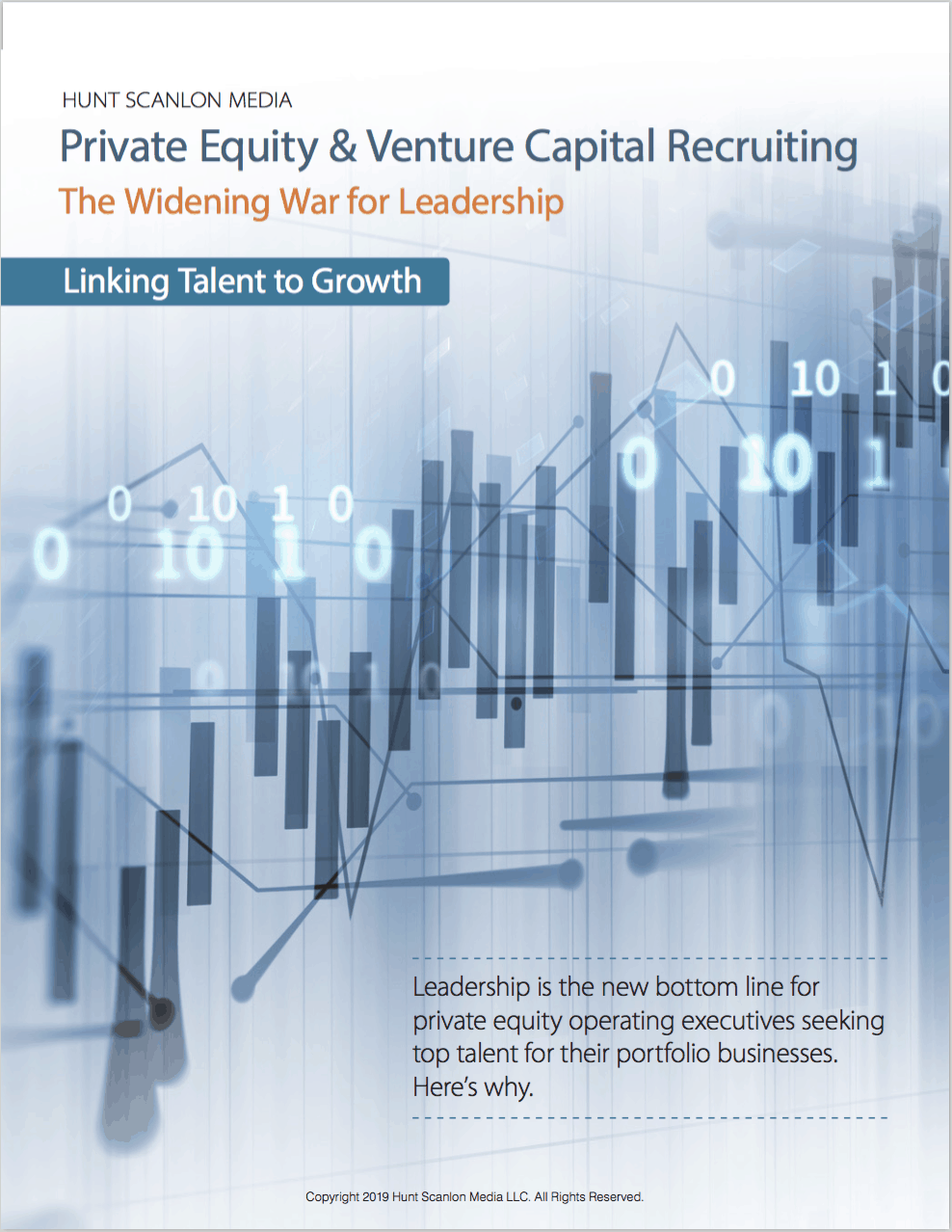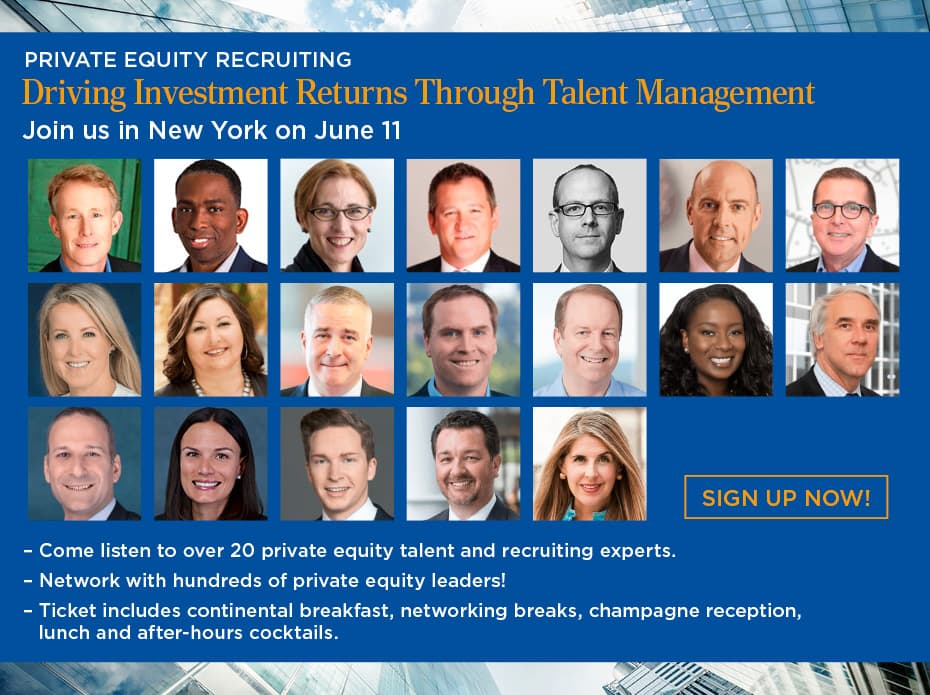Larger Funds Bring Increased Competition for Private Equity Talent

January 6, 2020 – The state of the U.S. private equity market is strong. As of November, U.S. private equity funds had raised $246 billion in 2019, more capital than in any other year recorded by PitchBook, and up substantially from a previous high of $238 billion in 2017. Large firms are driving the growth of private equity fundraising. Firms with at least $5 billion in assets under management (AUM) accounted for more than half of all fundraising through the third quarter of 2019.
This bodes well for compensation because the higher the AUM, the higher the compensation will likely be for a firm’s investment professionals, depending on the length of their private equity experience, according to Heidrick & Struggles’ recently released North American Private Equity Investment Professional Compensation Survey. The report asked 895 North American private equity investment professionals to provide compensation data from 2017, 2018 and 2019 to evaluate trends in compensation packages, including base salary, bonus and carried interest plans.
“The state of the private equity market remains strong,” said Jonathan Goldstein, regional managing partner of the search firm’s PE practice in the Americas. “Given the continued healthy returns in the private equity space, we feel that industry growth and compensation packages will continue to be robust. In addition, factors like the emergence of larger funds, new strategies and increasing retirement are creating more competition for talent at private equity firms, particularly at the partner and managing director level.” All good news for executive recruiters who more often than not these days are finding most roads run through the PE space.
While the operating partner role was the fastest-growing position within the private equity industry as of mid-2019, Heidrick & Struggles found that the actual number of investment professional assignments continued to dwarf operating partner assignments. This was true across all areas of private equity. “The advent of larger funds and new strategies is creating increased competition for talent, particularly at the partner/managing director level,” the report said. “At the same time, we are seeing an increase in retirements among managing partners and partners/managing directors at private equity firms, and we expect that trend will continue. In addition to their effect on employment levels at PE firms, retirements are spurring the growth of family offices as these retiring professionals focus their efforts on their own wealth.”
Compensation Trends
More than half of respondents (56 percent) reported an increase in base salary from 2018 to 2019, a slightly lower figure than the share of respondents (59 percent) whose base increased from 2017 to 2018. More than three-quarters of respondents (77 percent) indicated that their bonus increased from 2017 to 2018, the latest year for which data were available. Among those respondents who experienced an increase in 2019 base salary, 74 percent reported an increase of up to 20 percent, down from 77 percent in last year’s report.
 Private Equity & Venture Capital Recruiting: Linking Talent to Growth
Private Equity & Venture Capital Recruiting: Linking Talent to Growth
This latest research report from Hunt Scanlon Media examines the growing talent dilemma unfolding at private equity firms – and offers an array of solutions to win the widening war for leadership. According to Hunt Scanlon, the PE sector can expect to see an expanding bidding war for top talent over the next decade. Driving the trend: persistent global talent shortages across the C-suite in most industries and functions, including finance, healthcare and biotech, digital and technology.
Linking talent to growth is this report’s overriding theme. Hunt Scanlon has surveyed private equity leaders and their chief talent officers as well as leading executive recruiters specializing in the sector. Their expert commentary and advice is contained in this year’s report. Click here to read more!
Of those reporting an increase in 2018 bonus compared to 2017, Heidrick & Struggles found that 14 percent had an increase of more than 50 percent. The mean of total cash compensation by AUM soared for managing partners at firms in the $6 billion to $9.99 billion range. There were also notable gains for managing partners at firms in the $2 billion to $3.99 billion range. For 68 percent of respondents, bonuses were discretionary. Most bonuses were still paid in December.
Carried Interest Provisions
While carry remains uncommon at the associate/senior associate level, the Heidrick & Struggles report found that almost all of the investment professionals at more senior levels reported receiving carry. For more than half of investment professionals at every level, carry vests on a fund basis, rather than a deal-by-deal basis. This was true for 89 percent of all managing partners, compared with 66 percent of all associates/senior associates. For the majority of investment professionals, it takes five years for the maximum amount of carry to vest.
Related: Hunt Scanlon Media’s Top 10 Private Equity Recruiting Stories of 2019
Heidrick & Struggles found that almost all investment professionals had co-investment eligibility. Co-investment was fund-based for 57 percent or more of respondents at each level. A smaller percentage, generally 14-20 percent for most levels, was deal-based. The percentage of deal-based co-investment eligibility was highest among associates/senior associates (38 percent). Many investment professionals were provided with leverage on the dollars they invested, ranging from 40 percent of those at the associate/senior associate level to 48 percent of those at the vice president and principal levels.
Compensation Fairness
This year, for the first time, Heidrick & Struggles asked respondents to indicate whether they considered themselves to be receiving appropriate remuneration for their efforts. “We found that across levels of seniority, investment professionals who believed they were underpaid were more often receiving compensation on the lower end of the scale reported in the survey than those who felt their pay was fair,” Heidrick & Struggles said. “Many of those who thought they received fair compensation were actually in the top quartile among their peers.”
Heidrick & Struggles’ global private equity practice finds top private equity management talent by recruiting investment professionals, operating partners and other essential senior managers who support financial growth. Additionally, the Chicago-based firm works with private equity-backed portfolio companies to bring innovative services designed to meet today’s challenges while securing the leadership needed to deliver on tomorrow’s strategies. Its expertise includes due-diligence support, pre- and post-acquisition executive search, leadership assessment, proactive introductions, and the construction of advisory boards for both private equity firms and their portfolio companies. With more than 80 consultants in 50 offices around the world, Heidrick’s team includes functional experts in areas such as technology and operations, finance, human resources, marketing, compliance, risk, and legal infrastructure.
Related: Talent Chiefs Emerge Among Fastest-Growing Roles in Private Equity
Contributed by Scott A. Scanlon, Editor-in-Chief; Dale M. Zupsansky, Managing Editor; and Stephen Sawicki, Managing Editor – Hunt Scanlon Media












